At the opening of the Orange Digital Centre in Brussels, we spoke to Deputy CEO of Europe Mari Noelle Jego Laveissiere about why Orange is sticking its ore into the problem of digital illiteracy.
June 22, 2022
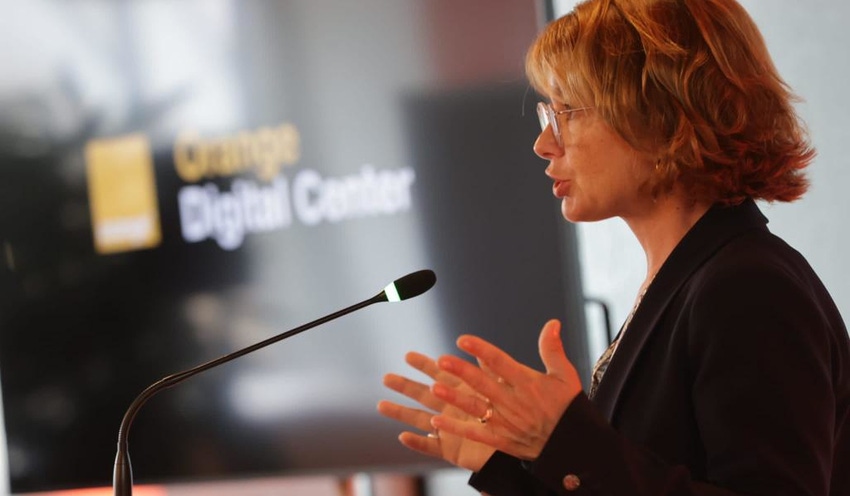
At the opening of the Orange Digital Centre in Brussels, we spoke to Deputy CEO of Europe Mari Noelle Jego Laveissiere about why Orange has taken it upon itself to address the problem of digital illiteracy.
This week Orange opened doors to a new Orange Digital Centre in Brussels, which it describes as a hub to host fledgling start-ups dabbling in techy fields such as crypto, AI and IoT. It’s also a kind of community centre where those that don’t know how to do basic digital tasks such as email or surfing the web can learn to do so.
It’s part of an existing set up called BeCentral (which also described as a digital hub, so there’s a bit of the Russian Doll effect going on) located next to Brussels Central Station. The Orange area consists of a series of workshops and lesson rooms within the space, in which people can dabble in some 3D printing, put together a IoT prototype using a pre-made kit, learn about programming or something more basic like Microsoft Word.
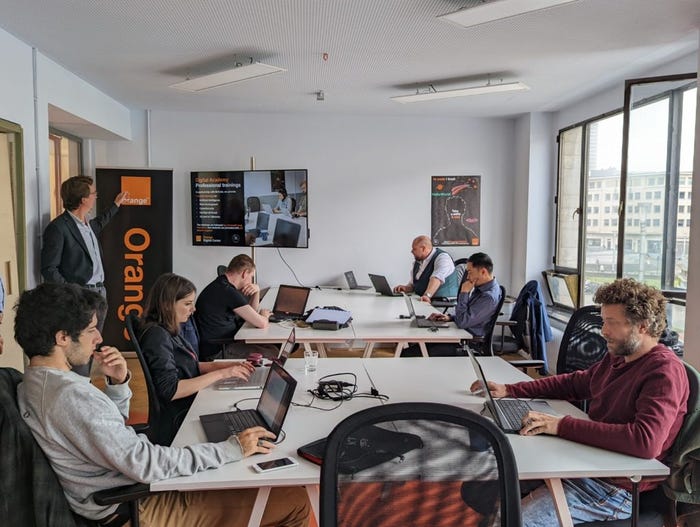
In short, some of it is performing the same role as you might expect a public library or community college to do, with a bit more of an emphasis of being some form of low-level incubator for wannabe entrepreneurs, bolstered with some collaboration with the 40 or so organisations within the wider BeCentral hub for internships and the like.
Petra De Sutter, the Belgian Deputy Prime Minister and Minister of Public Administration, Public Enterprises, Telecommunication and the Postal Services took to the stage at the launch event in BeCentral to explain the government’s backing of these sorts of projects that help with digital literacy. We are told ‘only 38% of the Belgian population has advanced digital competences’, while 17% of those with internet access only used it in a limited way, and 7% don’t us it at all.
These are issues the Belgian government would appear to be invested in tackling, and it has a pot of money to throw at projects like the Orange Digital Centre. It has put in €2 million Euros into the new Belgian centre, which is actually double what Orange spent on it. It’s not clear over what time period that money is to be spent, but they reckon they will have ‘trained up’ 600 people by the end of the year in some way shape or form. An emphasis was put on helping the young, women, immigrants and the less digitally literate.
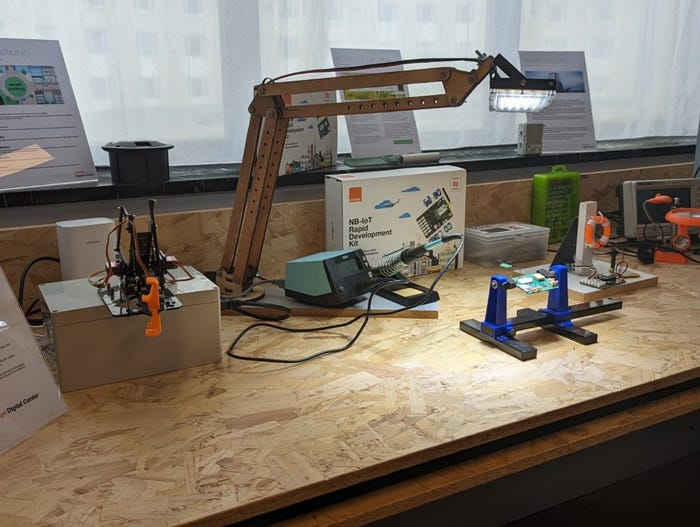
Mari Noelle Jego Laveissiere’s, Orange’s Deputy CEO of Europe, explained more about the programme to us:
“[The Orange Digital Centres] are really something that we want to do in each of our geographies,” she said. “We already have 11 in Africa, and we have one in France. This is the first one in Belgium and we will have other European countries. What we do at Orange is make sure making sure that we can offer the first step and the second step for everyone. Now we have partners, such as BeCode and others, so that we can go up to a very high expertise. What we deliver is making sure that [digital skills are] available for 100%… and for enterprise and start-ups we have the Orange Fab, which is also helping customers but we can also put them in relationship with other partners.”
We were told that is there no business plan as such and the message given is that any sort of return on investment, or access to any IP that might be generated, is not the reason for Orange setting these centres up. When asked if the programme is pure philanthropy, Laveissiere (pictured below) said. “Indeed… but internally if your employees are really proud of participating… it has a huge value for the teams. It’s not easy to put it in a in a P&L, but it’s kind of a return.”
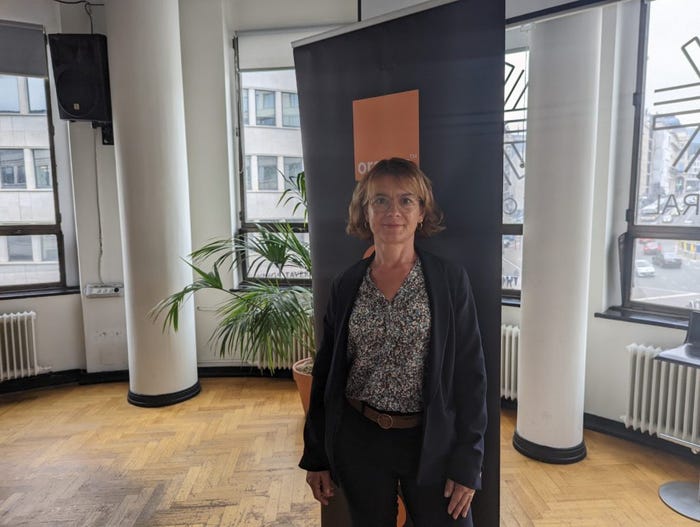
Orange has plans to roll these centres out in every country it operates in. It says in Europe ‘more than 6.7 million people are positively impacted by digital inclusion programs each year. For the whole Orange Group, this comes to 7.2 million.’ The ambition is that by 2025 it will develop digital skills for ‘everyone in Europe’ by providing digital inclusion and training programs to 34.5 million people and ‘top digital training‘ to 4.5 million people. The latter presumably means something more advanced than the former, wither way these are big numbers.
You can’t knock the ambition and of course providing training for digital skills, which is only going to be more important going forwards, is an admirable aim. If Orange wants to splash some cash and help out some locals who can’t use Gmail, or provide a bit of a leg up to someone thinking of getting into coding for a few months, what’s not to like?
There is however something of a mismatch going on with the relatively modest size of the installation we visited and the rhetoric around it. In conclusion – it’s a laudable set of aims, but if Orange wants to train people in the latest technology in the sorts of numbers suggested, they’re going to need a bigger boat than the one we saw in Brussels.

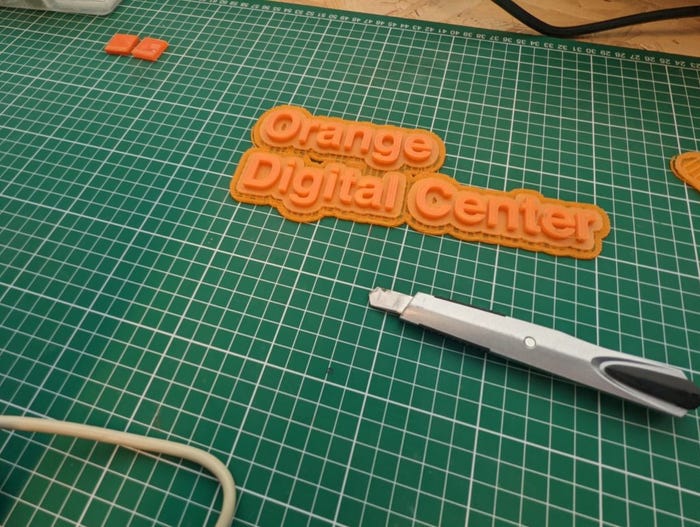
Get the latest news straight to your inbox. Register for the Telecoms.com newsletter here.
About the Author(s)
You May Also Like








.png?width=300&auto=webp&quality=80&disable=upscale)


_1.jpg?width=300&auto=webp&quality=80&disable=upscale)


.png?width=800&auto=webp&quality=80&disable=upscale)